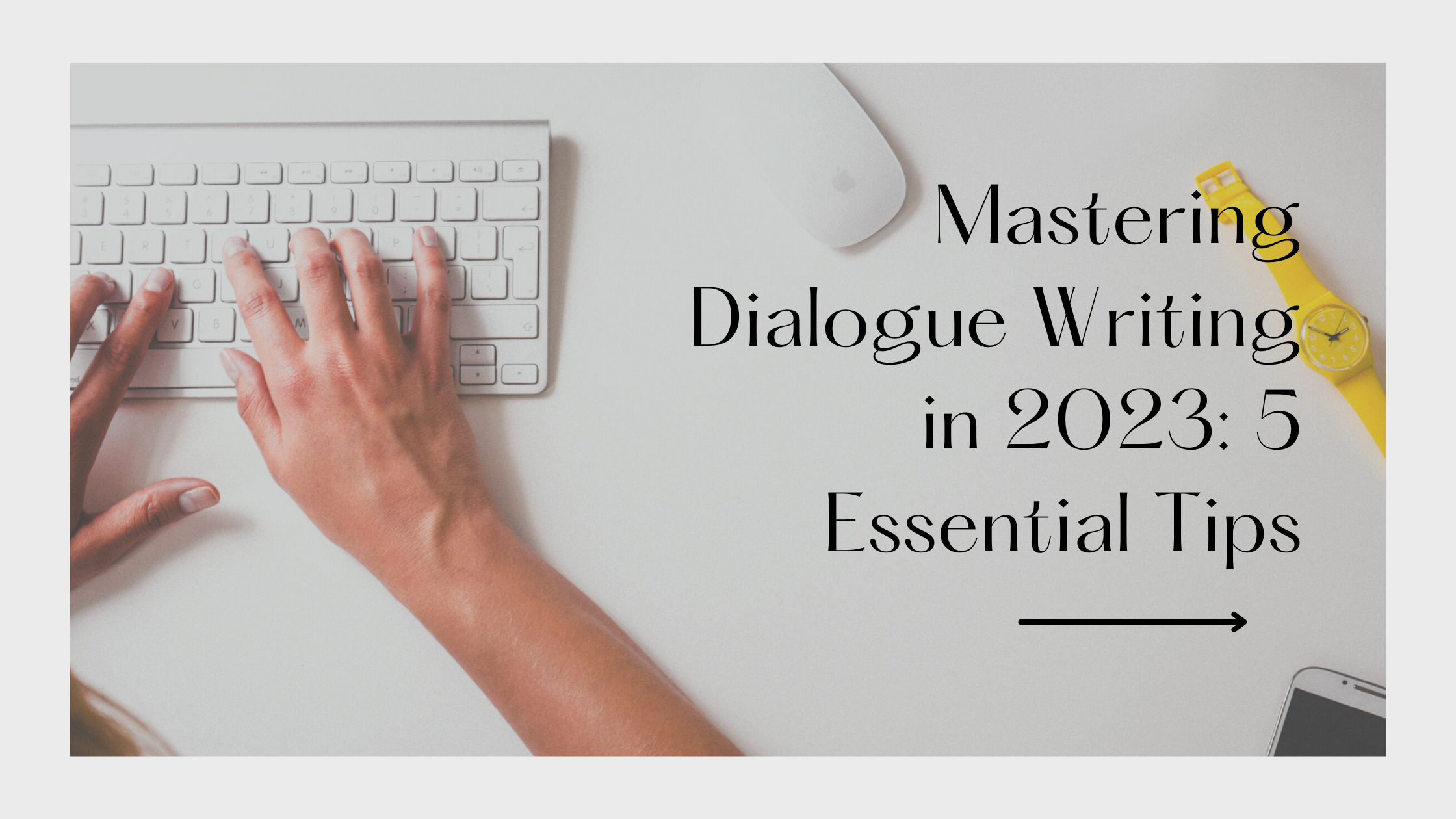Dialogue is a powerful tool in storytelling, whether it’s in literature, film, or any other form of narrative. Writing compelling and authentic dialogue can bring characters to life, engage readers, and enhance the overall storytelling experience. In 2023, with evolving writing styles and reader expectations, mastering the art of dialogue writing is crucial for writers. Here are five essential tips to help you improve your dialogue writing skills.
Study Real-Life Conversations:
To create realistic and engaging dialogue, pay attention to real-life conversations. Observe how people speak, their speech patterns, word choices, and the dynamics of communication. Listen to conversations in different settings and with diverse individuals to capture the nuances of language and develop an ear for authentic dialogue. Incorporating realistic dialogue in your writing will make your characters relatable and enhance the believability of your story.
Develop Unique Voices for Each Character:
Each character should have a distinct voice and manner of speaking. Consider their background, personality, and motivations when crafting their dialogue. Think about their education level, regional dialects, and any unique speech patterns or quirks they might have. A CEO might speak confidently and use formal language, while a teenager may use slang and have a more casual tone. Developing unique voices for your characters will bring depth and individuality to their conversations.
Use Dialogue to Reveal Character and Advance the Plot:
Dialogue should do more than just convey information. It should reveal character traits, emotions, and motivations while driving the plot forward. Each line of dialogue should serve a purpose, whether it’s providing insight into a character’s backstory, creating conflict, or advancing the story’s events. Avoid excessive exposition and focus on using dialogue as a tool to engage readers and move the narrative forward.
Balance Realism and Artistry:
While realism is important, remember that dialogue in storytelling is not an exact replica of real-life conversations. Aim for a balance between authenticity and artistry. Remove unnecessary filler words, repetitions, and excessive pauses that can bog down the pacing of your dialogue. Enhance the rhythm and flow of conversations by trimming unnecessary dialogue tags and employing strategic use of gestures, actions, and non-verbal cues to convey meaning.
Read Dialogue-Driven Works:
Reading dialogue-driven works by accomplished authors can provide valuable insights and inspiration for your own writing. Analyze how renowned authors handle dialogue in their stories and learn from their techniques. Pay attention to the pacing, subtext, and how dialogue is used to reveal character relationships and plot developments. Reading and studying well-crafted dialogue will help you refine your own writing style and expand your creative toolkit.
Conclusion:
Mastering dialogue writing is an ongoing process that requires practice, observation, and attention to detail. By studying real-life conversations, developing unique voices for your characters, using dialogue to reveal character and advance the plot, balancing realism and artistry, and reading dialogue-driven works, you can elevate your dialogue writing skills in 2023. Remember, compelling and authentic dialogue not only brings your characters to life but also enhances the overall impact and enjoyment of your storytelling.



